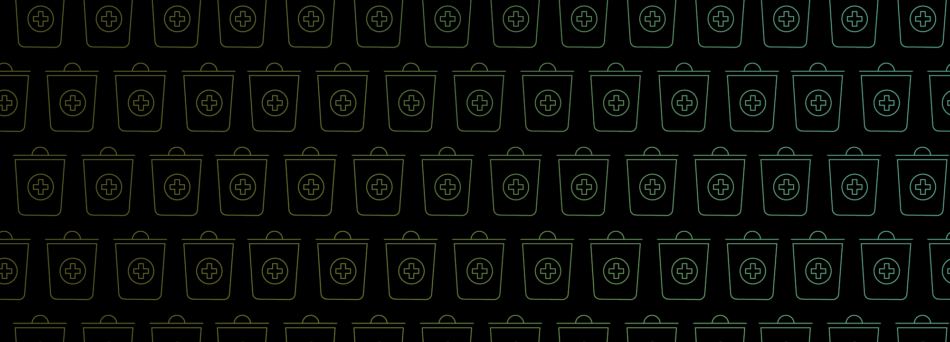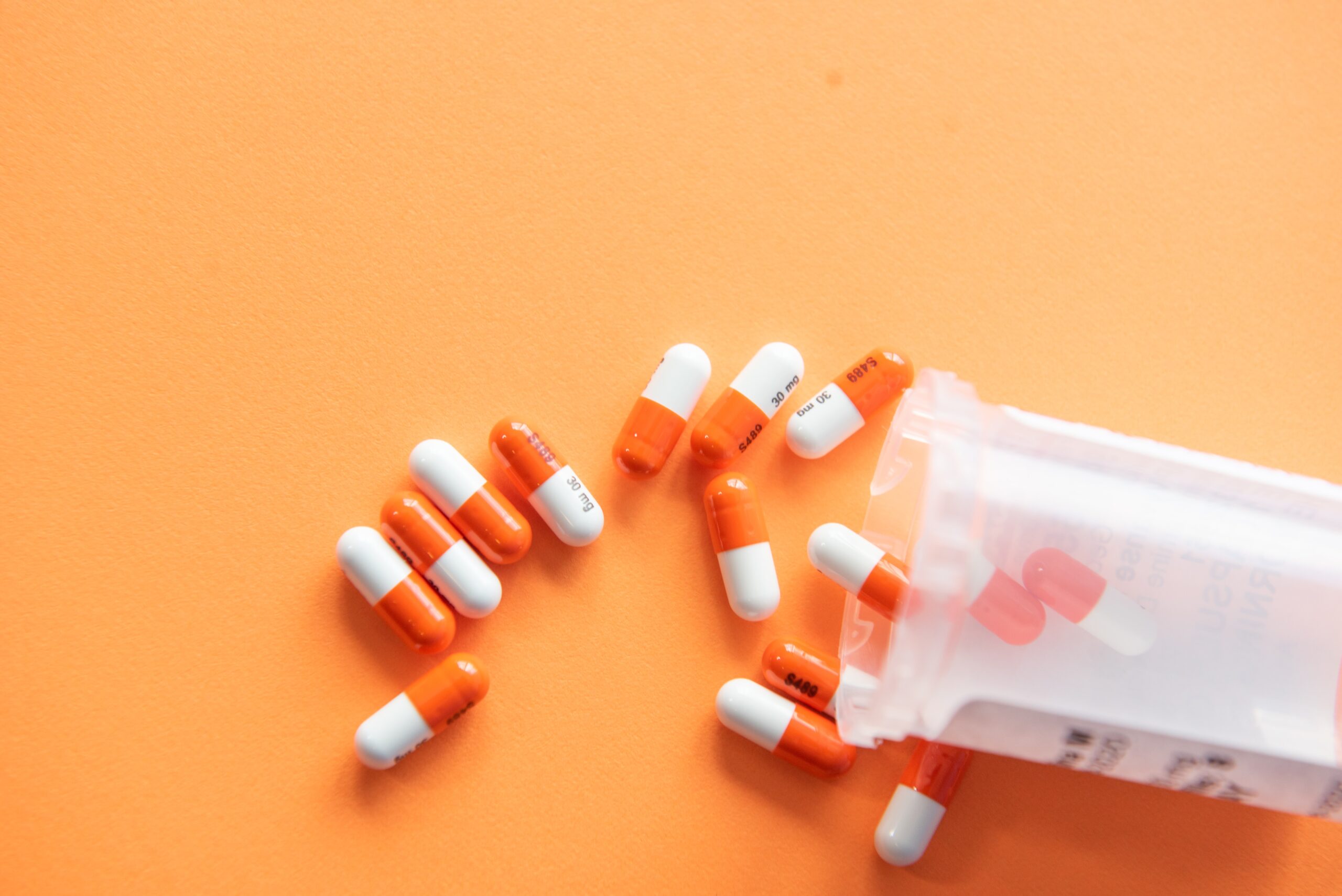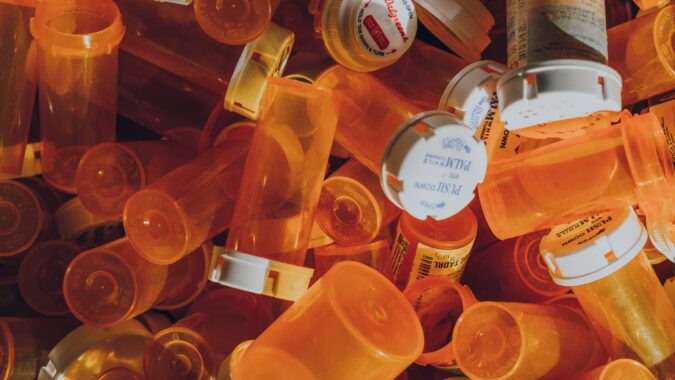
Pharmaceutical Waste Disposal
Employers have a legal duty to ensure any pharmaceutical waste your business produces is managed, stored, and disposed of safely. Improper storage and disposal of pharmaceutical waste can harm the environment, human and animal health. Your duty of care means you could face legal action if your pharmaceutical waste management fails to follow the regulations. Arrange safe and legal disposal with Business Waste today.
We can provide your company with pharmaceutical waste containers and bins to ensure your waste is safely collected and disposed. Whatever your industry, the type and amount of pharmaceutical waste you have, we can collect from all locations across the UK. Speak to one of our experts by calling 0800 211 8390 or contact us online for a free quote.
Get a free quote
Get a fast FREE quote for pharmaceutical waste disposal
- Free quote within 1 hr
- Any type of pharmaceutical waste
- FREE bins and delivery
- We cover all of the UK
Contents
Pharmaceutical waste
management
Having a plan in place for your pharmaceutical waste management is vital, whether you generate a little or lot of waste. It can help ensure any used, expired, or other pharmaceutical waste is stored safely on your premises, collected by an appropriate party, and disposed of in line with pharmaceutical waste regulations. This protects both human and environmental health.
Pharmaceutical waste management within your business needs to make it clear how any such waste is segregated, where it should be stored, and for how long. Any employees that handle or deal with pharmaceutical waste should be trained to follow it properly, reducing the risk of contamination, spills, and other problems.
Arranging collection by a licensed waste carrier through Business Waste can help ensure your pharmaceutical waste management runs smoothly.
Pharmaceutical waste
bins and bags
You must store pharmaceutical waste securely before collection. This minimises the chance of the waste leaking, spilling, or contaminating any other waste accumulated on your property. At Business Waste, we provide a wide range of different pharmaceutical waste bins, bags, and containers.
These provide safe and secure storage for your pharmaceutical waste before it’s collected, as it could be on your premises for a few days or weeks. Explore the range of pharmaceutical waste bags, containers, and bins and understand what the different colours mean.
Pharmaceutical waste
collection
There are many options your organisation can take regarding pharmaceutical waste. You have a legal ‘duty of care’ to ensure safe and proper disposal of pharmaceutical waste that your company generates. Arrange collection with Business Waste and we help ensure it’s all collected, transported, and disposed of safely and legally.
Tell us the type of waste you have and how much you need getting rid of and we’ll deliver free pharmaceutical waste bins for you to fill. You simply put in the appropriate pharmaceutical waste and store securely, then move to the agreed pickup point ahead of time and pay for collection.
Fill these bins with the appropriate pharmaceutical waste type for each one and within any weight limits. You can get more than one of the same or different pharmaceutical waste bags, bins, and containers delivered and collected to deal with a variety of waste at the same time. Arrange collection as a one-off or on a daily, weekly, or fortnightly basis.
Our friendly team can answer any questions you may have about your pharmaceutical waste management and provide a free quote based on your needs. Call us today on 0800 211 8390 or fill in an online contact form and one of our experts will be in touch.
How does pharmaceutical
waste collection work?
-
Select your free bins
It’s quick and easy to organise commercial waste collection for your business.
Simply start by telling us the:
- Type of waste you need removing
- Size of bins you require
- Number of bins you want
We’ll provide you with a free quote.
-
Arrange delivery
When you’re happy with the type, number, and size of free bins, tell us when you need your bins delivering.
Let us know about any access issues where you want the bins delivering – such as locked gates, access codes and times. We’ll get you up and running in no time.
-
Fill up your bin
After the free bins arrive at your chosen location, fill them up with the agreed waste type.
Make sure you remain within any weight limits for the specific waste type and bin size.
-
Get your business waste collected
We’ll arrange waste collection at a time and frequency to suit you and the amount of waste you have.
As featured in…
What is
pharmaceutical waste?
Pharmaceutical waste is that containing any expired, unused, contaminated, damaged or unneeded medicinal drugs. This could be anything from unused over-the-counter medicines such as paracetamol, to prescription drugs that are both hazardous and non-hazardous. Either way, they can contaminate landfill, so your business must arrange proper disposal of pharmaceutical waste.
Our pharmaceutical waste services can help with the collection and disposal of:
- Cytotoxic waste
- Cytostatic waste
- Out of date pharmaceutical stock
- Pharmaceutical stock that’s no longer required
- Controlled drugs destruction kits
- Recalled pharmaceutical stock
- Pharmi bins
- PPE waste

Pharmaceutical waste
regulations
Various laws and legislations govern pharmaceutical waste storage and disposal. Three of the main ones are the:
- Hazardous Waste Regulations 2005
- Controlled Waste Regulations 2012
- Environmental Protection Act 1990
Hazardous Waste
Regulations 2005
According to the Health and Safety Executive (HSE), hazardous waste ‘contains substances or has properties that might make it harmful to human health or the environment’. By that definition, most pharmaceutical waste classifies as hazardous. As such, you must comply with the Hazardous Waste Regulations 2005 when disposing of it.
This means your business needs to register with the Environment Agency – unless you produce less than 500kg of hazardous waste annually. You must store pharmaceutical waste securely and separately from your general waste, to avoid cross-contamination. You’re also responsible for ensuring your hazardous pharmaceutical waste is properly disposed of by a licensed carrier, such as Business Waste.
Controlled Waste
Regulations 2012
This legislation focuses on ensuring that waste is controlled and disposed of properly. The regulation states that all waste – be that household or commercial – is classified as ‘controlled waste’. This means that it’s subject to the Environmental Protection Act.
The Environmental
Protection Act 1990
As the name suggests, this legislation protects the environment from further harm. It enforces a ‘duty of care’ on anyone who produces, carries, or disposes of waste to ensure it’s done safely in a way that minimises our environmental impact. This applies to pharmaceutical waste, as if it goes to landfill it can pollute the surrounding land, water, and air.
To comply, you must store your pharmaceutical waste securely. No unauthorised personnel (such as the general public) should be able to access the waste and it must be kept in appropriate pharmaceutical waste containers, so it doesn’t leak or spill.
If handing waste to a waste carrier, you must ensure that they have the appropriate licences. Each time waste is transferred, you must put together a written receipt, sometimes referred to as a waste transfer note. A waste transfer note must contain the following information:
- A detailed description of the pharmaceutical waste. You should also note down the European Waste Catalogue (EWC) code for your waste. For example, the EWC code for medicine is 18 01 09.
- Details on how the pharmaceutical waste was stored/packaged.
- The quantity of waste.
- Transfer date/place.
- Personal details of both parties (name, address, and licence).
- Information about your business/company, including the Standard Industrial Classification (SIC).
Many of the legislations overlap but you must be compliant when storing and disposing of pharmaceutical waste to protect our planet and your business. Failure to follow the above guidelines could result in large fines and even imprisonment.
How to dispose of
pharmaceutical waste
Pharmaceutical waste cannot be disposed of in the usual way. Special care and precautions must be taken when handling and disposing of pharmaceutical waste due to its dangerous nature. You should not leave pharmaceutical waste lying around, especially if you are producing large volumes of waste each day.
If you work in a clinical facility, you need to take pharmaceutical waste to your designated waste collection point three times a day. This ensures the waste is stored securely, minimising the chance of contamination or it harming others. It’s essential that your waste is also collected regularly, to reduce any risks when it’s in storage.
The disposal of pharmaceutical waste doesn’t have to be overcomplicated. Tell us your business’ needs and we can advise you on the best course of action. Whether you need a cytotoxic and cytostatic waste bin, pharma bins or CODE kits, we have a choice of options to meet your organisation’s requirements, as best as we possibly can.
Who needs pharmaceutical
waste disposal?
The healthcare industry understandably requires effective pharmaceutical waste management, as businesses working in this sector deal with lots of medicinal products. Pharmacies are the main places that need to arrange frequent disposal, while hospitals and other types of healthcare organisations can end up with large amounts of waste too.
Some of the main places that need to arrange disposal of pharmaceutical waste include:
- Care homes – unused and expired medicinal drugs for residents
- Dentists – any waste medications used for dental treatments
- Hospitals – for patient health and within hospital-based pharmacies
- Laboratories – production and testing of pharmaceuticals generates waste
- Pharmacies – community pharmacies deal with expired and unused drugs
What happens to
pharmaceutical waste?
Pharmaceutical waste should always be denatured (whether they’re expired or not) to avoid abuse or theft. After segregating and safely placing your pharmaceutical waste in the right types of bins and containers, it will be collected by our licensed carriers and transported to a nearby facility. What happens next depends on the type of pharmaceutical waste.
Normally it will be treated and incinerated to break down the complex chemical make-up. The remnants from incineration often go to landfill as the pollutant properties are now removed, so it should be safe to mix with other waste types. Any biohazardous pharmaceutical waste will likely be sterilised first to remove its infectious potential.

Pharmaceutical waste
facts
Around £300 million worth of medicine prescribed by the NHS go to waste every year – this includes both partially used and unused medicines. Of this total about £50 million worth are disposed of by care homes across the UK. However, the total cost of medicines in England alone exceeds £15 billion.
Every year there are an estimated 16 million injections administered across the world – though not all these syringes and needles are disposed of correctly. Of all healthcare related waste generated annually, around 85% is non-hazardous, while the other 15% could be considered hazardous, toxic, infectious, or radioactive.
Read our reviews
James was very helpful and to be honest since starting with this company the service has been excellent.Christeen Norfolk
Pharmaceutical waste
FAQs
-
How often should you have pharmaceutical waste collected?
You shouldn’t leave pharmaceutical waste lying around, especially if you produce large volumes of waste each day. If you work in a clinical facility, you need to ensure such waste is taken to your designated waste collection point three times a day. This ensures the waste is stored securely, minimising the chance of contamination or causing harm to others.
However, it’s essential that your waste is also collected regularly, to minimise any risks associated with the waste itself. This could be daily, weekly, or fortnightly – depending on the type and amount of pharma waste your company produces.
-
How do I dispose of tablets?
If tablets have expired, the protective packaging is damaged, or they’re simply leftover from a condition and no longer needed, they require proper disposal. One way to dispose of tablets in the UK is to return them to pharmacies for removal. Do not crush the tablets or mix with other medicines or substances.
When you have lots of old tablets, it can be easiest to arrange pharmaceutical waste collection with Business Waste. We’ll provide you with the relevant bins or bags for the tablets you have and collect them to dispose of in a safe and legal manner.
You can easily recycle tablet boxes and packaging with cardboard recycling in most cases. Those that come in bottles can be recycled depending on their material – such as with glass waste or plastic waste.
-
Why is pharmaceutical waste management important?
Pharmaceutical waste management is essential to protect both people and the environment. Especially with hazardous medicinal waste, proper management avoids the potential of harming human health and contaminating land, water, and air if such waste ends up in landfill.
As a business, you also have a duty of care to safely store and dispose of pharmaceutical waste in the proper way. Managing this carefully should ensure any such waste your company produces is dealt with appropriately, avoiding potential fines for improper disposal of pharmaceutical waste.
-
How can we reduce pharmaceutical waste?
Reducing pharmaceutical waste avoids excess spending on medicines and cuts the amount sent for incineration, which can release toxic gases into the environment. There are a few things businesses and individuals can do to try and reduce pharmaceutical waste:
- Improve stock control with proper rotation and date checking
- Use medicines within expiry dates to avoid unnecessary waste
- Avoid excess dispensing by checking if patients already have relevant medicines
- Regular stock checking so there’s no over ordering
- Timely ordering to avoid medicines arriving too late and being wasted
-
What are the pharmaceutical waste containers colours?
Pharmaceutical waste containers colours differ based on what type of clinical waste they store. Lid colours are different to show what they can contain. These colours are generally:
- Blue lid – pharmaceutical waste such as expired medicines and contaminated products like gloves and masks.
- Black lid – also for pharmaceutical waste such as paracetamol, cough medicine, and more.
- Yellow lid – infectious clinical waste contaminated with blood and medicines.
- Orange lid – sharps waste including needles, syringes, and more.
- Purple lid – cytotoxic and cytostatic waste like hormone and chemotherapy medicines.
- Red lid – anatomical waste including infectious and non-infectious body parts.
- Black and yellow striped – non-infectious waste and no pharmaceutical or chemical waste.
Get your free pharmaceutical waste disposal quote
Get a fast FREE quote for pharmaceutical waste disposal
- Free quote within 1 hr
- Any type of pharmaceutical waste
- FREE bins and delivery
- We cover all of the UK